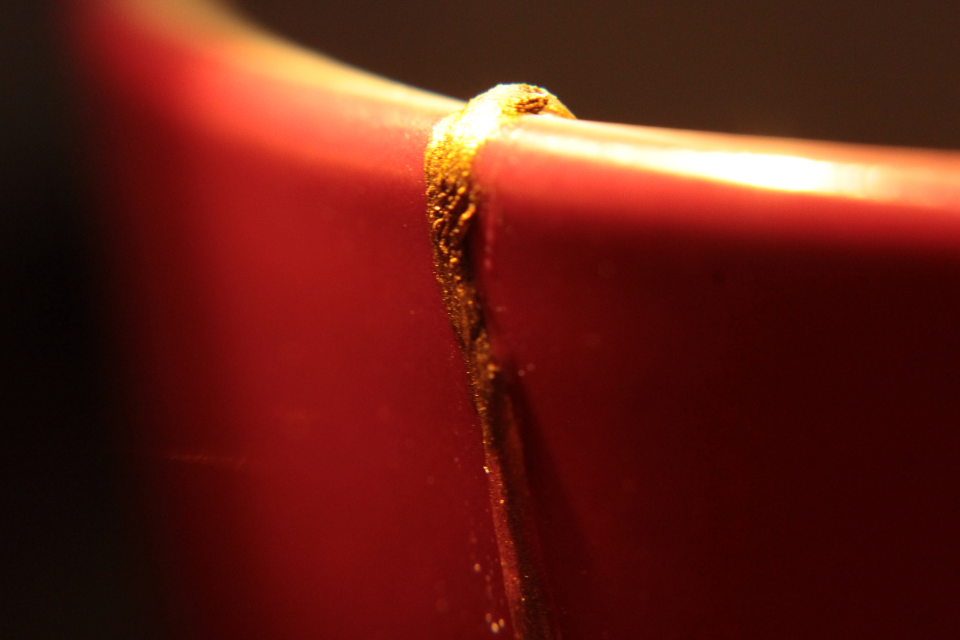Members of a growing Michigan Conference Contemplative Cohort invite you to spend Fridays in Advent exploring a form of contemplative prayer. This week, Rev. Paul Reissmann encourages us to find the pain in our lives and allow God’s grace to touch and transform it.
REV. PAUL REISSMANN
Pastor, Lake Odessa: Central UMC
“We are like clay jars in which this treasure is stored. The real power comes from God and not from us” (2 Corinthians 4:7, CEV).
It seems funny that we celebrate joy in a season where the light dwindles every evening until its presence feels diminished, like the end of a candlewick. What might be the wisdom of such a thing? How do we find joy when the light seems to be fading?
This contemplation can be admittedly difficult to do. We often live in a world where we assert that happiness and positivity are ends in themselves, even to the point of invalidating the wounds on our souls. To our detriment, we bypass the pain for a more palatable image of life.
And yet, joy seems to be part and parcel with pain. Joy asserts itself amid the pains of life. The joys of childbirth cannot be felt until the suffering pangs of giving birth are felt. They are hand in hand and intermingled experientially. Though joy wins out and a child is born to us, it is despite the pain, not absent from it.
Such is the nature of our faith. Often, we cannot find joy until we work through the pain, until the wounds are reopened and exposed to the air, the balms are administered, and the body finally processes all that is caught in its thicket.
The joy we experience in Christ Jesus comes after the visceral reality of his birth and after the suffering of his death. Birth and new birth mysteriously come after the suffering and do not ignore it, but they also do not dwell upon it, reassuring us that we can survive the pain and that even suffering itself can be transformed. Though we are the farthest away from dawn at Christmastime, we know that we will inevitably come around to a time when the days are longer than the bleak winter nights.
Invitation to the Practice of Soul Kintsugi
Kintsugi is the Japanese practice of repairing broken pottery and other items. More than mere repairing, this practice sees the broken pieces of that item brought together and reforged with gold or another precious metal. It is a practice that reveals true beauty in bringing something back together that was once broken, the gold within the cracks hinting toward something divine touching and transforming what was once destroyed.
While this practice is powerful as a Visio Divina, allowing our eyes to see and our imaginations to enter a sacred image, it takes on another dimension as a body prayer.
The Advent season is not always pleasant or stress-free. And sometimes, it’s not even contemplative. The old wounds reopen, and old emotions rise to the surface. Pay attention to where those emotions and soul-hurts arise in your body. Place your hand on that place in your body as if to comfort that wound, and then breathe. Imagine the golden grace of God flowing into the place that is suffering in you and transforming that wound into a work of art. Rest assured that the broken places being reforged only increases your beauty in the eyes of God. Repeat as often as you need to regain your grounding in God’s eternal hope for you.
For more information on joining the Michigan Conference Contemplative Cohort, email Lisa Batten at lbatten@michiganumc.org.
For information on upcoming 2023 Contemplative Retreats the Michigan Conference offers, click the links below.
February 16-18, 2023
Wesley Woods Camp and Retreat Center
Learn more and register by clicking this secure link.
October 16-18, 2023
Lake Huron Retreat Center
Learn more and register by clicking this secure link.
Last Updated on January 31, 2024

